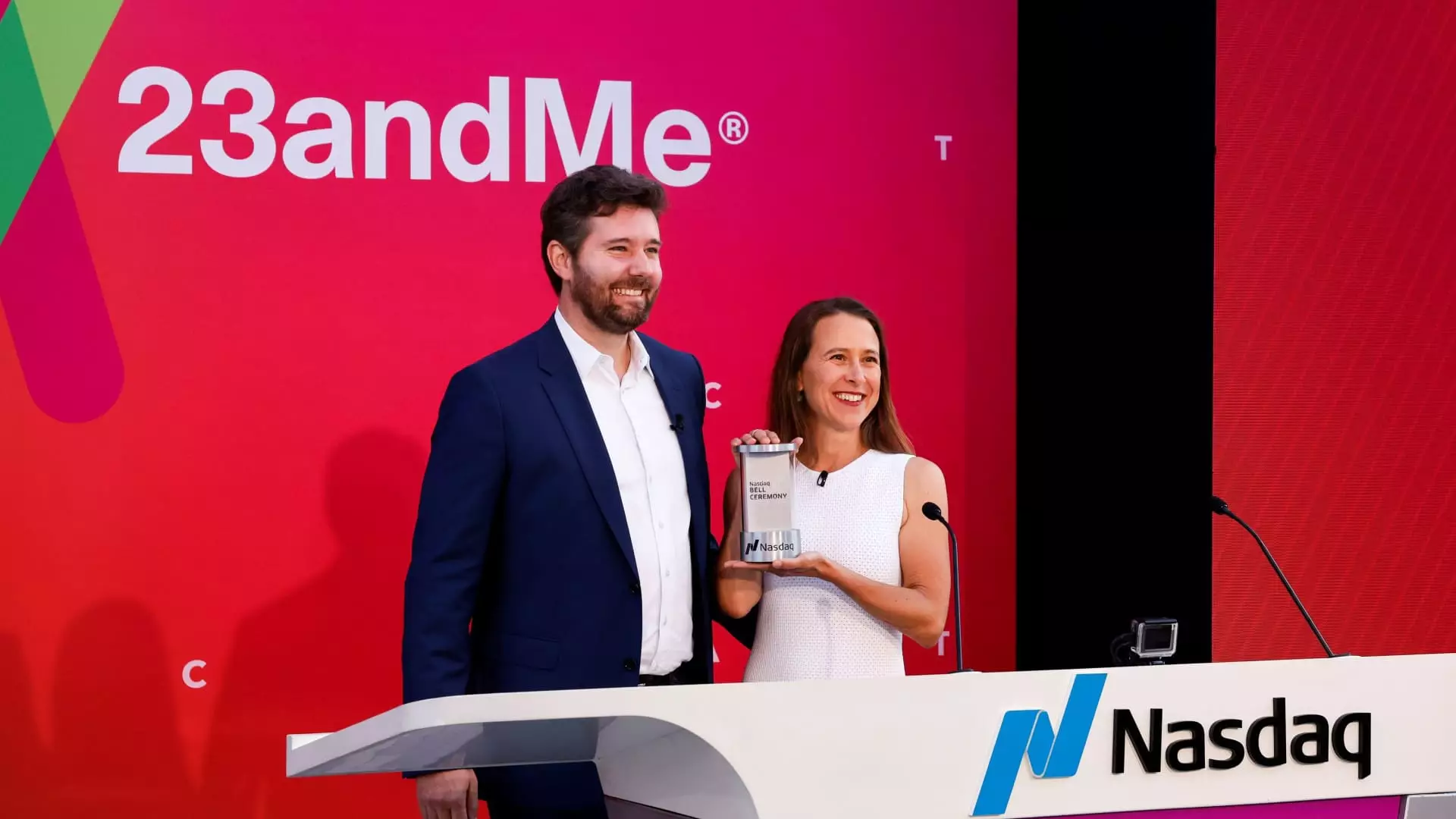In the dynamic realm of genetic testing, few companies have captured public attention as dramatically as 23andMe. Founded in 2006, the company positioned itself to democratize access to genetic information with its innovative direct-to-consumer model. Backed by significant venture capital and buoyed by celebrity endorsements, 23andMe once held a staggering valuation of $6 billion. It aimed to unearth genetic secrets not only for consumer benefit but also for potential breakthroughs in drug development. However, the narrative took a sobering turn, leading to a sharp decline in value—a drop of 98%—and raising pressing questions about the sustainability of its business model and management strategies.
23andMe differentiated itself in a crowded field, notably its competitor Ancestry.com, by positioning its genetic database as a dual-purpose entity—one that serves consumers interested in ancestry and personal health and can also pave the way for pharmaceutical advancements. The company made a splash in public markets in 2021, achieving a valuation of approximately $3.5 billion, thanks to the hype surrounding personal genomics and its unique business proposition. Management, led by CEO Anne Wojcicki, expressed optimism about significant growth opportunities in both the therapeutic landscape and the consumer market.
However, initial success quickly morphed into a challenging struggle for relevance as broader economic issues began to loom. The company found itself navigating the uncertainties brought about by rising interest rates, which not only increased the cost of capital but diminished investor appetite for riskier equities like biotech. Consequently, a decline in sales soon followed.
Challenges and Missteps
To counteract dwindling revenues, 23andMe introduced a premium subscription model in 2020, hoping to generate recurring revenue beyond its one-time testing kits. This pivot proved ineffective, and the company’s financial woes deepened. By 2023, it recorded a staggering net loss of $312 million. Such losses not only impacted the balance sheet but also eroded investor confidence, ultimately leading the company’s share price to drop below $1 by September 2023—a critical threshold for maintaining its listing on the Nasdaq.
These financial struggles were compounded by privacy concerns, an Achilles’ heel for a company handling sensitive genetic data. October 2023 saw a major data breach that exposed the private information of nearly 7 million customers, raising alarms over data security and customer trust. When a company’s cornerstone is built on the assurance of privacy, such vulnerabilities can have dire implications both ethically and financially.
As internal strife unfolded, 23andMe faced turbulence at the executive level. After a series of resignations by independent board members in September, a narrative of discontent emerged. Reportedly, these resignations stemmed from “strategic differences” with Wojcicki regarding the future direction of the company. The management turmoil reflected a deeper malaise within the organization—a disconnect between visionary aspirations and practical execution.
With a looming deadline of November 4 to raise its share price above $1 and to procure new board members, 23andMe found itself at a crossroads, teetering on the brink of delisting from the Nasdaq. Moreover, Wojcicki’s proposal to take the company private was dismissed, raising further questions about her leadership and vision for recovery.
The narrative of 23andMe serves as a cautionary tale about the complexities of merging consumer aspirations with entrepreneurial ambitions, especially in a field as sensitive as genetic testing. The allure of rapid growth and innovative disruption often masks the inherent risks and responsibilities involved. As 23andMe navigates these turbulent waters, it remains to be seen whether it can reclaim its former status or if it will fade into obscurity as a poignant reminder of the challenges that accompany bold entrepreneurial ventures. Potentially, its story could usher in a new era of accountability in genetic testing, emphasizing the need for transparency, security, and strategic foresight in corporate governance.


Leave a Reply